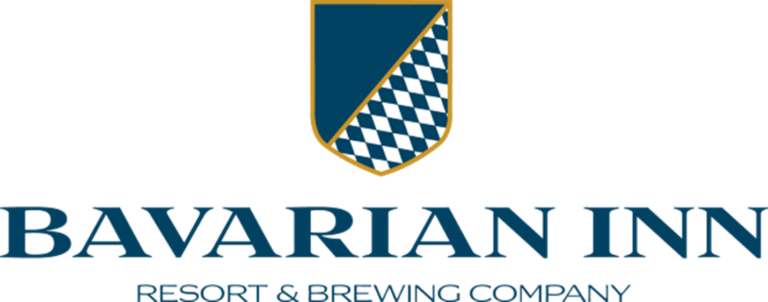In their video presentations our five panelists addressed the following guide questions...
What are your perspectives on the MAIN underlying causes of “broken” race relations in the US?
What are suggestions for promoting improved race relations in our communities, including high schools?
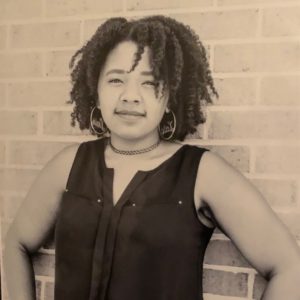
History and Impact of Systemic Racism
MAIN TOPIC
Presented by Ms. Vivian Baylor
Program Manager of the Women’s Empowerment Center (Martinsburg, West Virginia), and Secretary of NAACP Chapter of Berkeley County, West Virginia
Vivan’s Key Messages
Better understanding underlying causes of broken race relations involves a bit of a history lesson and explanation of the impact of systematic racism. Core solutions involve students of color being encouraged to embrace their blackness and to recognize their great value. Don’t let anyone tell you otherwise. All students also are encouraged to get involved and not be afraid to stand and speak up for what is “right” in terms of better race relations.
Vivan’s Key Messages
Better understanding underlying causes of broken race relations involves a bit of a history lesson and explanation of the impact of systematic racism. Core solutions involve students of color being encouraged to embrace their blackness and to recognize their great value. Don’t let anyone tell you otherwise. All students also are encouraged to get involved and not be afraid to stand and speak up for what is “right” in terms of better race relations.
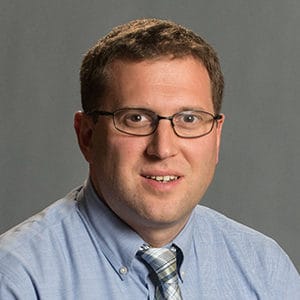
Experiential Peacebuilding
MAIN TOPIC
Presented by Mr. Flavio Bollag
Executive Director, Outward Bound Center for Peacebuilding www.outwardboundpeace.org
Meet Mr. Flavio Bollag
Flavio joined the Outward Bound Center for Peacebuilding as the advancement director in May 2015. Together with Ana Patel, he is the co-editor of Experiential Peacebuilding, and he has helped to develop and share experiential activities on the topic of Positive Peace with numerous partner organizations, including Rotary International.
Flavio studied English and history at Middlebury College, where he also spent many hours exploring the Green Mountains, and holds a Master’s degree in Comparative Literature from Rutgers University. He and his wife and their two daughters live in Smithtown, New York.
Flavio’s Key Messages
The work of the Outward Bound Center for Peacebuilding (OBCP) addresses some of the underlying causes of broken race relations in the US, including the failure to understand the deeper race issues and to work together to break down race barriers. OBCP brings together diverse peoples and groups, and challenges and inspires them to work together across race divides, and to find collaborative ways to build more peaceful communities. OBCP believes that individuals and groups are capable of great leadership and bold action when they are trained, empowered and feel confident about their ability to connect with others and to bridge the gaps between them. OBCP follows some key principles of working and providing constructive approaches which are applicable to enhancing race relations, including promoting:
(a) Intentional Communities: take the time to understand and communicate our shared goals, needs, challenges, and strengths to find and work toward shared objectives and actions;
(b) Reflective Practices: make space and time to reflect about our actions and events and to share with others, what made us proud and satisfied, and what we think we need to change in the future to enhance our relationships.
At OBCP, we also believe strongly in the value of promoting simple and interactive exercises among diverse persons; these exercises can help us understand the race and other challenges, and guide us in the best ways to work together. One example is to follow the “5 Whys” practice — this is a quick and easy way to ask yourself and others why something, such as race relations, is not working well, and ultimately, to address the root causes and to work together in addressing the relevant challenges. The more we work to understand one another’s deeper needs and motivations, the more likely we are to find common ground and to empathize with someone else’s views and priorities. The consistent application of these principles and practices can enhance race relations.
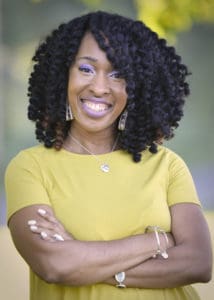
Constructive Engagement
MAIN TOPIC
Presented by Ms. Tanya Dallas Lewis
Cultural Unity & Equity and Staff Development Coordinator for Jefferson County Schools, West Virginia
Meet Ms. Tanya Dallas Lewis
Previous to her current position, Ms. Lewis was a 7th grade Language Arts Teacher at Martinsburg South Middle School in Berkeley County, West Virginia. During her tenure there, Tanya formed and coached the elementary and middle school Step Teams, directed the All Boys Special Event Choir that performed for school and community special events, facilitated Cultural Proficiency trainings within her district, and co-founded the South Middle School Culture Club, a group of diverse students who assisted Tanya with coordinating and planning school-wide assemblies and special events that honored and recognized various cultural contributions and achievements of marginalized groups.
A seasoned media personality, before entering the education field, Tanya would spend 12 years working for television stations like FOX 5, NBC 4, WUSA 9 and PAX/Ion Television after graduating from George Mason University with a degree in Speech Communication and Television Broadcast and Production. In her spare time, Tanya is an award-winning billboard artist and vocal musician/singer/songwriter, having been recognized on the 2018 and 2019 first round Grammy ballots for her contributions in Gospel music.
In 2010, her music video, ”Something About A Miracle” received over 100,000 viral views on YouTube and ReverbNation, airing heavily on the radio, and the BET (Black Entertainment Network), The Gospel Music Channel and VH1 Music. She considers herself a “full-time laugher” and “boy mamma,” as she considers it her privilege to be the mother of two teenage boys.
Tanya’s Key Messages
Tanya’s presentation highlights several ways to bring students into social justice and anti-bias work which is needed in our communities and in our school buildings, now more than ever. She constructively engages students to reflect and consider the role that mass media plays as an underlying cause of broken race relations, which is a pervasive condition in the U.S. and around the globe. In addressing the second question, what are possible solutions, Tanya outlines 3 strategies, whereby school administration and students would collaborate, one classroom and one community at a time: (1) arrange for student development days to enhance race-related tone and trust among and between students and faculty; (2) promote student voice and advocacy, whereby students would exercise their influence; an
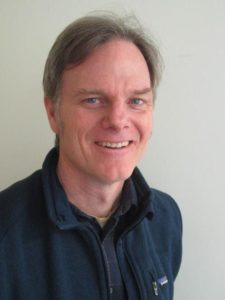
Breaking Through Racial Stereotypes
MAIN TOPIC
Presented by Dr. David Didden
Medical Director of Overdose Prevention and Innovations Project in West Virginia
Meet Dr. David Didden
David is currently Medical Director of Overdose Prevention and Innovations Project in West Virginia. He graduated from the US Air Force Academy, and served in the US Air Force for 4 years, then graduated from University of Virginia School of Medicine (1999). He has 21 years of diverse medical practice experience in his capacity as a family medicine practice, medical officer for Jefferson County, and physician for “refugees” of the war on drugs and substance abuse in West Virginia.David’s Key Messages:
Attitudes involving race are often manipulated to increase disparities of different types, thereby perpetuating white privilege as a major underlying cause of broken race relations. With regards to a core element of possible solutions, there is an urgent need to break through racial stereotypes through promoting meaningful conversations, activities and relationships, in our schools and communities.
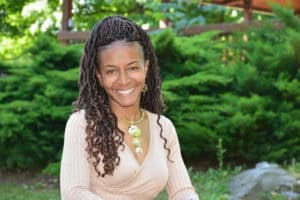
Human Capital Transmission
MAIN TOPIC
Presented by Dr. Chiquita Howard-Bostic
Professor and Chair of Sociology Department, and Associate Vice President of Equity, Diversity and Inclusivity of Shepherd University, West Virginia.
Meet Dr. Chiquita Howard-Bostic
She is the Associate Vice President of Diversity, Equity, and Inclusivity and department chair of Sociology, Criminology, and Criminal Justice at Shepherd University (SU) in Shepherdstown, West Virginia, US. She is a certified life coach, girl scout and 4-H leader, and founder of a program called “Help Bridge,” providing leadership and social justice education in the community.
Howard-Bostic who educates the community about anti-human trafficking, multicultural justice, dating violence prevention, and financial and environmental sustainability. Howard-Bostic was born and raised in Buffalo, New York where she began serving the community at the age of fourteen working with city legislatures and later working at community organizations as a grant writer and advocate for marginalized youth and adults. Howard-Bostic earned a bachelor’s degree in Legal Studies and a master’s degree in Urban Planning at the State University of New York at Buffalo. She received a Ph.D. in Sociology, teaching certificate in Women’s Studies, and a Race and Social Policy research certification at Virginia Polytechnic Institute and State University. She is a former college director of institutional assessment and has served as an executive director of housing and human services. Thousands of school-aged youth and community stakeholders benefit from her workshops, justice trainings, intervention projects, events, food drives, service projects, and community workshops.
Dr. Howard-Bostic was the first recipient of Shepherd’s Storer College Award, which recognizes faculty who incorporates diversity and social justice into his or her classroom, research, scholarship, and interaction with students. She also received the 2015 SU Outstanding Teacher Award. In 2017, Howard-Bostic received the Outstanding Service Award, and in 2020, was awarded the Outstanding Academic Advisor Award. In 2018, she was honored as the 2018 Distinguished Alumni for the State University of New York at Buffalo Educational Opportunity Program (EOP). Howard-Bostic was recognized by American Mothers as the 2020 West Virginia Mother of the Year and is the 2021 recipient of the “WV Governor’s Living the Dream” award.
Chiquita’s Key Messages:
Dr. Chiquita Howard-Bostic’s 2020 WAS presentation focuses attention to the concept, “human capital transmission”; it comprises one of the major underlying causes of poor race relations, and also comprises key elements and approach to enhance over time race relations in a constructive manner. Human capital is the economic value of an individual’s experience and skills, which includes health habits, knowledge, actions, personality, and individual success. She defines to concept to encourage administrators, teachers, and students to acknowledge gaps in ways that society has fallen short in transmitting, promoting, and encouraging the abilities of student and staff members of marginalized groups. Groups who are historically marginalized are dominated by hierarchies of power and social rules that accompany the power structure. Even when new opportunities are created, it is important to also adjust social rules that maintain institutionally discriminatory power dynamics. These poor social dynamics discourage teamwork and increase expectations for poor behavior and uneven punishment of marginalized groups. They also encourage stereotype threat and disorder-based labeling rather than support networks.
Dr. Howard-Bostic intends to motivate change. She urges that leaders re-envision how they motive these students to perform quality and high-skilled labor and invest in new ways to continually develop core skills, skills required to elevate their human capital. By enhancing human capital, we will reshape belief systems and reform the motivation structure to improve access, abilities, and ways individuals achieve goals, develop, and remain innovative. We do this together by showing at-risk populations how they are and can be useful. We include these parties in the finest parts of our plans for growth strategies and have high or equal expectations for their success. The overarching goals of the conversation are to (1) empower students of marginalized groups to maximize their impact socially and economically, and (2) to enhance passion for all people in ways that challenge pre-existing stereotypes and increase skills-building opportunities in ways that have not closed gaps for success in the past.
Finally, Shepherd University is supporting marginalized groups in several ways. Shepherd has a Multicultural Leadership Team of students, a WISE Mentorship Program to provide a network for students of marginalized groups, a Student Success Academy to provide information and support for at-risk and nontraditional students, and TRIO Support Services for first generation college students. Shepherd also has the TRIO-Upward Bound program which aligns high school students with college readiness and life skills.

